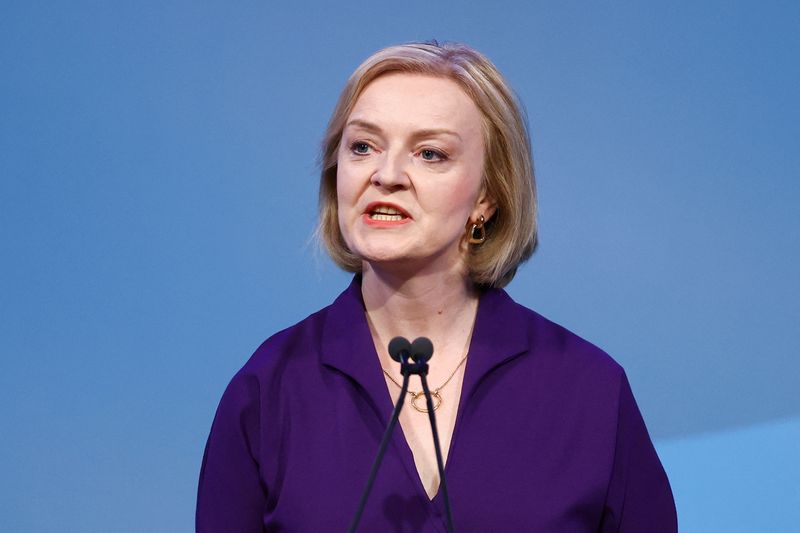By Geoffrey Smith
Investing.com -- The pound and U.K. government bonds fell on Wednesday as U.K. Prime Minister Liz Truss failed to dispel doubts about her ability to safeguard the country's finances in a keynote speech.
By 08:00 ET (12:00 GMT), the pound had slumped 1.2% against the dollar to $1.1326, from an intraday high of nearly $1.15 earlier. At the same time, the yield on the benchmark 10-Year government bond, or gilt, rose back above 4%, after Truss stuck to her previously-announced policies without offering any detail on how she intends to keep borrowing under control.
The tax cuts and energy subsidies announced by Truss's Treasury chief Kwasi Kwarteng are still set to cost the U.K. over 60 billion pounds over the next year, even after Truss abandoned her plan to scrap the 45% income tax bracket for the U.K.'s top 2% of earners.
Economists have criticized the plans as likely to fuel inflation, which is currently running at nearly 10%, while her income tax plans went down badly with her own party's lawmakers, many of whom criticized them for doling out tax cuts to the wealthy at a time of general hardship. In a TV interview earlier in the day, Truss had pointedly declined to answer a question on whether she still trusted her finance chief, Kwasi Kwarteng, to make the right decisions.
Truss tried hard in her speech to stress that she won't let inflation get out of hand. She also clearly backtracked from the threats to end the Bank of England's control over monetary policy, which she had made during her campaign to become Party Leader over the summer.
"I believe in sound money," she said, adding that her government "will always be fiscally responsible."
As such, she promised to bring Britain's debt-to-GDP ratio down "over the medium term."
However, she offered no detail on how she intends to achieve that, other than through economic growth. Kwarteng, for his part, has said he won't publish his spending plans until November 23rd, leaving a long period of uncertainty at a time when global financial markets are unusually volatile.
Rory Stewart, a former Conservative Party minister under David Cameron, tweeted that while the speech was confidently delivered and had clear policy lines, it failed to answer the internal contradictions in its logic, such as scrapping legacy EU regulation while keeping access to the EU's markets, or funding big improvements in the areas of health and defense without sharply increasing the budget deficit.
